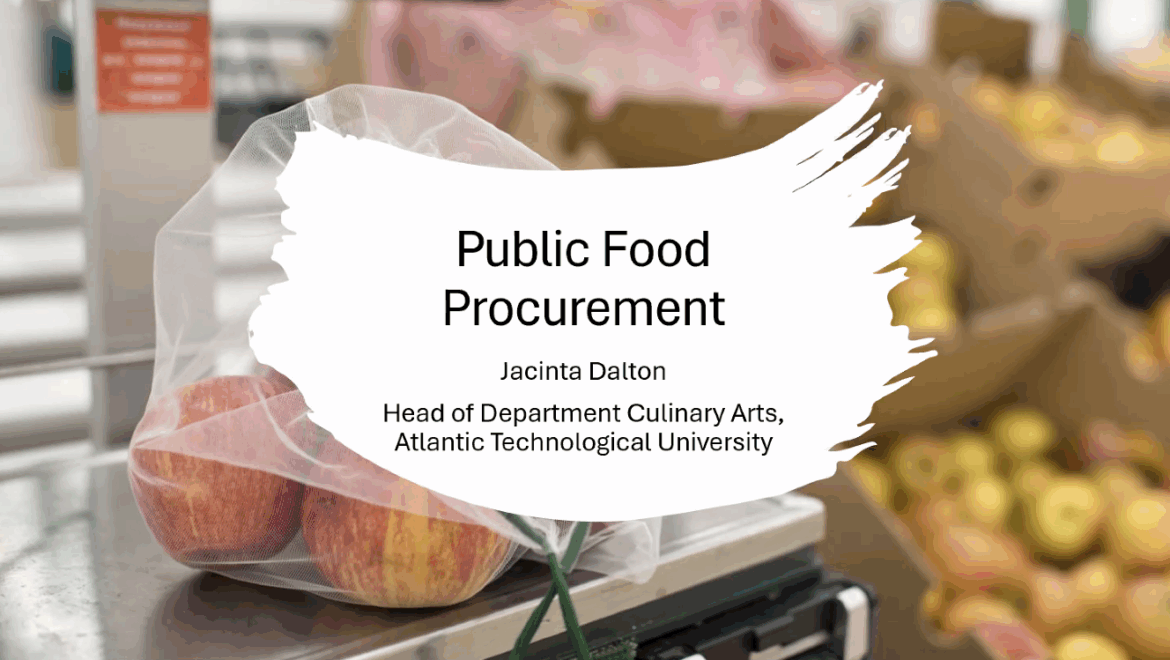The transformative potential of public food procurement to drive systemic change towards sustainability and community wellbeing took centre stage during the webinar Public Food Procurement and its Impact on Sustainability, hosted by IGCAT on 7 November 2025, in collaboration with IGCAT Expert Jacinta Dalton.
Jacinta is the Head of Culinary Arts at Atlantic Technological University in Galway and stakeholder for Galway–West of Ireland, European Region of Gastronomy 2018. The session explored how rethinking food procurement practices in schools and public institutions can deliver healthier, more sustainable, and fairer food systems.
Drawing on her extensive experience, Jacinta introduced the concept of a Dynamic Purchasing System (DPS) which is newly introduced into EU legislation. This new flexible model has the real potential of empowering local farmers and small food suppliers, by allowing them to join or leave supply frameworks at any time. This approach encourages inclusive participation, fair pricing, and greater resilience within local food economies. As she explained, “Public procurement must move from a mindset of lowest cost to one of long-term value and sustainability.”
Participants from IGCAT’s global network engaged in a lively and constructive discussion, sharing regional best practices and projects that are reshaping how food is sourced for schools, hospitals, and public institutions. Examples included initiatives from Scotland, Central Dalmatia (European Region of Gastronomy 2027), Coimbra (European Region of Gastronomy 2021), while representatives from Aseer (World Region of Gastronomy 2024) expressed great interest in understanding how such frameworks could be adapted to their local context.
The conversation emphasized the human dimension of procurement, the empathy and engagement required to connect with farmers and producers who often lack digital access but play a vital role in sustainable food systems.
As Jacinta highlighted, achieving Net Zero Carbon goals by 2050 will require systemic reform of food systems, where public procurement becomes a catalyst for social and environmental good. By hosting webinars such as this one, IGCAT continues to champion innovative ideas, cross-regional collaboration, and policy dialogue that strengthen food culture, sustainability, and local economies.
A warm thank you to Jacinta Dalton for her inspiring presentation, and to all participating experts for sharing their insights and experiences in advancing a more sustainable food future.

